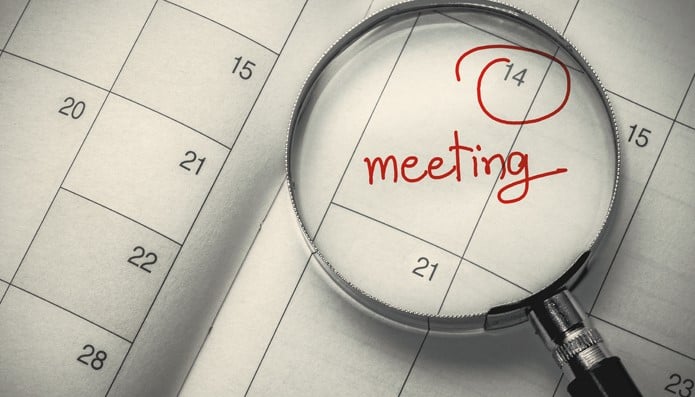Why you should never overlook the importance of meetings
Meetings are vital to keep your team members on the same page and your projects running smoothly.
Whether you’re sharing information, making decisions or gathering feedback, there are many positive reasons for having a regular get-together.
While some employees might roll their eyes at the merest mention of a meeting, in truth, they are a fundamental part of business. Above all else, a meeting is the perfect way of communicating with everyone at the same time.

Despite meetings as an entity sometimes being unpopular, surveys reveal 76% of professionals believe face-to-face is a better way of communicating, over emails or phone calls.
Organisations that don’t hold meetings are more likely to suffer the consequences of miscommunication, a loss of direction and a lack of accountability. Professionals feel all this could be easily avoided by having a centralised event where people can communicate in person.
Benefits of meetings
Meetings are the best platform to discuss openly issues that affect everyone. They provide a great medium to share information and remind everyone of the organisation’s goals. Without ongoing communication, it’s easy for an organisation to lose sight of its immediate targets and long-term goals.
Meetings are proven to increase engagement, collaboration and accountability. They give the whole team a shared sense of purpose, while also providing opportunities for personal growth.
Business leaders get the chance to share the latest updates on projects and other important information. There is the chance to open communication and encourage everyone to contribute if they wish. Everyone has a voice that will be heard and the environment encourages attendees to come up with creative solutions.
How to run effective team meetings
Plan your meeting in advance and send a calendar invite. When you tell colleagues early, this shows them more courtesy and gives them the chance to arrange their diary. One of the biggest complaints about meetings is that they intrude and disrupt the normal work schedule.
Sending an invite in advance, so that everyone has plenty of notice, gives people the time to arrange their schedule efficiently. Always work from an agenda to give an idea of what to expect and to keep the meeting on track.
During the meeting, make note of action items, assignments, responsibilities and decisions so everyone’s on the same page. Always open the floor for questions, discussions and any work-related concerns.
If points don’t need to be specifically addressed during the meeting, putting them in the minutes as an action point for the next meeting will make delegates feel you’re listening.
Post-Covid climate
Many people have felt like they’ve been living in a social vacuum for the past two years due to the Covid pandemic. While missing out on a social life and seeing friends and family was tough, it also made people realise the value of their workplace.
Many businesses thrive as a result of a system of informal exchanges that are often overlooked. Sharing a chat during a coffee break, or at the water dispenser, is a way of communicating in an informal way with your co-workers and often sparks creative ideas which otherwise wouldn’t have occurred.
While the majority of people were working from home, these conversations have been non-existent. Going back to work and getting together to discuss work issues again is a chance to reconnect and talk shop – surprisingly, something a lot of us have missed!
There’s a certain camaraderie in the office that can’t be replicated anywhere else. A good meeting can energise the team in a way that’s been hard to maintain over Zoom. The value of face-to-face meetings should never be overlooked: it is something that’s very important, on both a corporate and personal level.
Share this post
Tags
- Career Development
- Celebrity Meetings
- Conferences
- Confidence
- Exhibitions
- Historic Meetings
- How to Interview Effectively
- Human Resources
- In The Press
- Meetings and Conferences
- Monarchy
- News
- Our Team
- Personal Development
- Personnel
- Presentation Techniques
- Teamwork
- Top Tips for Meetings
- Training & Workshops
- Video Conferences



